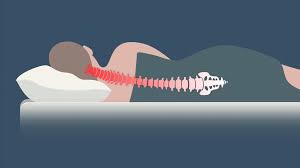Back and joint pain affects people across a wide range of lifestyles and age groups. A good mattress supports natural spine alignment, which can relieve pressure during sleep. Without enough support, the back and neck may remain tense throughout the night. Poor spinal support at night may lead to stiffness or discomfort in the morning, even in otherwise healthy individuals.
How do Mattress Types Affect Relaxation?
The type of mattress plays a role in how the body relaxes. If the surface is too soft, heavier areas like the hips can sink, creating stress on the lower back. If it is too firm, it may create pressure on joints and prevent natural curvature of the spine. A good mattress should hold the body in a neutral position. This alignment helps muscles rest and recover overnight rather than compensate for poor support.
How do Materials Influence Pressure and Support?
Certain mattress materials offer better pressure distribution and consistent support than others. Memory foam, latex, and hybrid mattresses are known for contouring to the body without sagging. Over time, traditional innerspring mattresses may wear unevenly, which affects alignment and contributes to discomfort. A good mattress made of supportive and stable material can maintain its shape and performance longer, making a difference in how the back feels each morning.
The internal construction and material layers affect airflow, temperature, and firmness. These factors contribute to overall comfort, but they also impact how the spine is supported. When the spine stays aligned, muscles and joints experience less strain and joint pain.
How Does Sleep Quality Connect to Joint Pain?
Sleep quality directly influences how the body processes pain. Interrupted or shallow sleep may increase pain sensitivity and reduce the body’s ability to heal. A good mattress that provides consistent support contributes to more restful sleep, which may lower perceived pain over time. People who wake frequently due to discomfort may not enter the deeper sleep stages needed for physical recovery. Better sleep posture and longer rest periods support spinal discs and reduce muscle fatigue. This can create a noticeable difference in daily mobility and comfort.
How Does Back Pain Determine Needing a New Mattress?
While a good mattress contributes to better spinal alignment, not all back pain comes from the sleep surface. Chronic pain conditions, injuries, or poor posture during the day may also cause discomfort at night. However, a mattress that promotes proper alignment may reduce added pressure and support other treatments. When pain is mild or related to posture or muscle tension, improved sleep positioning may reduce symptoms without additional medical intervention.
Choose Supportive Sleep for Long-Term Health
If back discomfort disrupts sleep or lingers throughout the day, evaluating the mattress may be worth the effort. A good mattress supports recovery, reduces nighttime strain, and encourages more restorative sleep. The right surface should feel stable and balanced, promoting proper posture through the night.
Talk with a qualified provider if pain continues or worsens. Making changes to the sleep environment, including the mattress, may complement other strategies. Supportive rest is one part of staying mobile, comfortable, and well-rested.









Leave a Reply